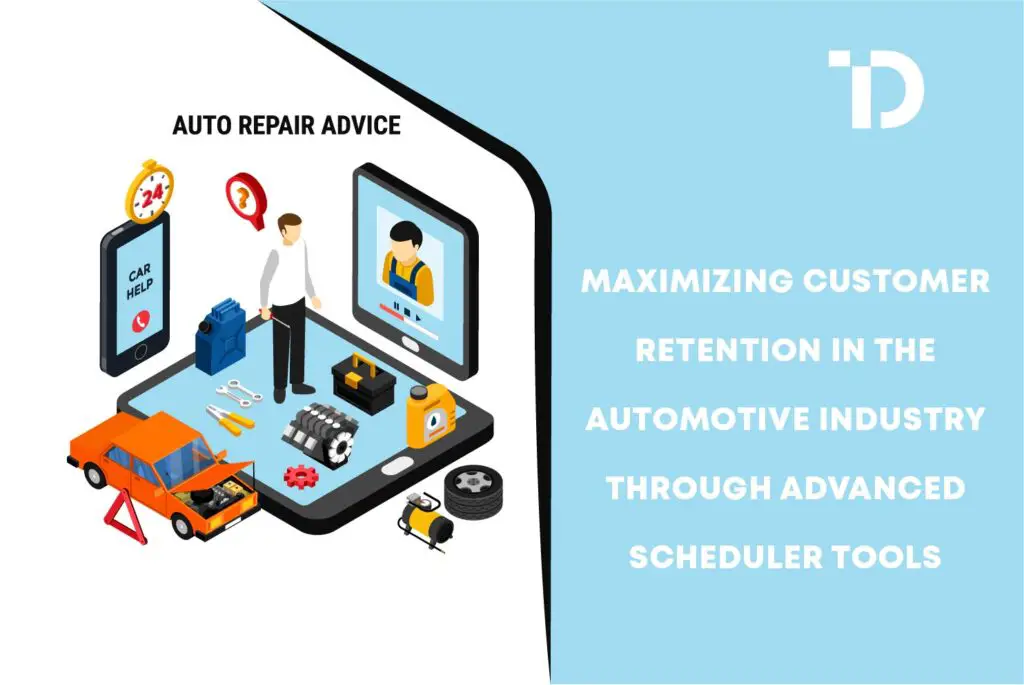Understanding Customer Expectations in the Automotive Service Sector
Customer expectations in the automotive service sector have dramatically evolved. Modern clients seek quality repairs, convenience, efficiency, and enhanced communication. They favor service providers who value their time, offer flexible appointment settings, and provide frequent updates. Today’s customers are also more inclined to engage with businesses that can provide tailored experiences, as evidenced by the detailed insights from Forbes. The right technology can turn the tide here, elevating customer service from standard to extraordinary. One particular aspect of such technology is advanced scheduler tools, which can significantly contribute to the efficiency of auto repair marketing strategies.
Essential Features of an Effective Scheduling Tool
An effective scheduling tool should be the nexus between the customer’s need for convenience and the service provider’s operational efficiency. Key features include a user-friendly interface that simplifies booking appointments, real-time reminders to reduce no-shows, and integrations with workshop management systems to ensure that service providers can adequately prepare for upcoming jobs. This synergy between user experience and technical functionality is crucial in maintaining a consistent traffic flow in and out of service bays while keeping customers content with the ease of interaction.
Strategies to Increase Engagement Using Scheduler Tools
To maximize the effectiveness of digital scheduling tools, auto businesses must devise strategies that foster higher engagement rates. These include loyalty programs that reward customers for using online booking platforms or promotional campaigns highlighting the convenience of scheduling services. Service providers should also utilize customer data analysis to send personalized reminders and service suggestions, which not only serves to increase engagement but also demonstrates a commitment to personalized customer care.
The Rise of Technology in Customer Service Management
Technology integration has fundamentally changed the mechanics of customer service management within the automotive service industry. For an industry historically reliant on direct personal interactions, embracing digital platforms represents a significant pivot towards a more data-driven, responsive, and customer-centric approach. This magnitude of transformation is also reflected in broader industry reports, which evaluate how automotive businesses invest in technology to future-proof their operations against a landscape that increasingly values immediacy alongside service quality.
Benefits of Implementing Advanced Scheduler Tools in Auto Dealerships
When advanced scheduler tools are employed wisely within auto dealerships, they streamline workflows and enhance the overall customer experience. These tools enable an efficient allocation of resources, ensuring that skilled labor is not idling and customers are not waiting unnecessarily. Additionally, with the insights provided through sophisticated analytics, service managers can better understand peak times and customer preferences, potentially leading to further optimizations in service offerings and marketing tactics.
Case Studies: Transformation with Digital Scheduler Systems
The proof, as they say, is in the pudding. Real-world case studies of auto service providers implementing scheduler systems clearly show the benefits. Such upgrades have led to measurable boosts in customer satisfaction and return service rates. For many dealerships, the transition to digital tools involved an initial learning curve, but the subsequent improvements in efficiency and customer relations overwhelmingly justify the investment in technology.
How Scheduler Tools Align with Consumer Digital Adoption
Consumers increasingly rely on apps and online services to manage their daily tasks in our digitally-driven society. Auto service scheduler tools that cater to this behavior meet the clients where they are comfortable and reinforce a brand’s modern and tech-savvy image. The adoption of scheduling tools that sync with personal digital assistants or that leverage mobile app integrations is thus a reflection of a brand’s commitment to adapting to the needs and habits of its customers.
Looking Ahead: The Future of Automotive Service Technology
Looking to the future, the automotive service industry is set for further innovation. Cutting-edge scheduler systems might eventually employ artificial intelligence to predict service needs and initiate bookings, reducing the cognitive load on consumers and service personnel. These exciting developments not only have the potential to further simplify customer interactions with auto service providers but also suggest a not-too-distant future where the focus of service can shift from scheduled maintenance to preemptive care, powered by a deep understanding of customer needs and vehicle telematics.
Overall, as the automotive industry continues to chart its course through an evolving digital landscape, the tools it embraces will significantly define its ability to retain customers and thrive. Those businesses willing to invest in and actively promote advanced scheduler tools will likely witness enhanced customer loyalty and increased operational efficiency. In the realm of auto repair marketing, it’s these proactive implementations that speak volumes about a brand’s ethos and its vision for the future.
Related Posts:
The Impact and Advantages of Integrating CPQ Solutions into Business Ecosystems
Navigating Growth With Confidence: How an Acumatica ERP Expert Can Guide Your Business
